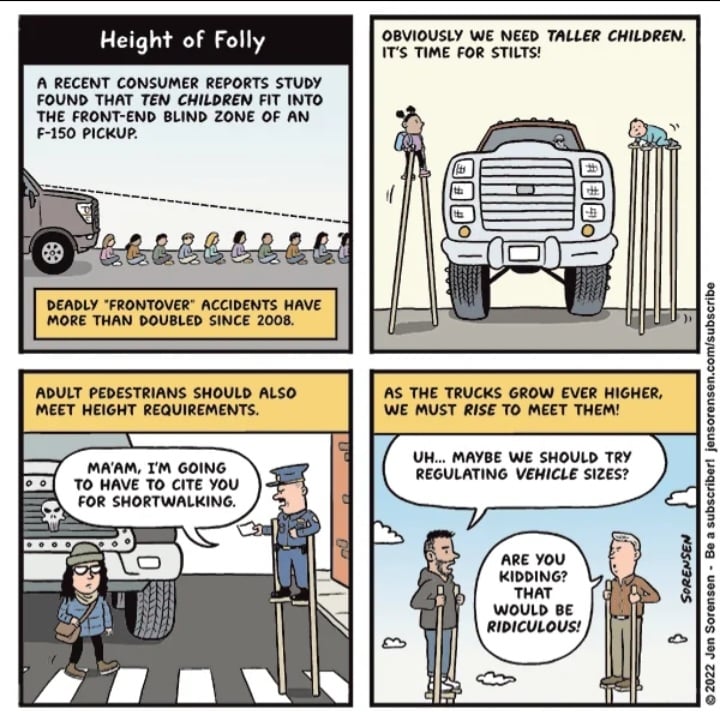Fuck Cars
A place to discuss problems of car centric infrastructure or how it hurts us all. Let's explore the bad world of Cars!
Rules
1. Be Civil
You may not agree on ideas, but please do not be needlessly rude or insulting to other people in this community.
2. No hate speech
Don't discriminate or disparage people on the basis of sex, gender, race, ethnicity, nationality, religion, or sexuality.
3. Don't harass people
Don't follow people you disagree with into multiple threads or into PMs to insult, disparage, or otherwise attack them. And certainly don't doxx any non-public figures.
4. Stay on topic
This community is about cars, their externalities in society, car-dependency, and solutions to these.
5. No reposts
Do not repost content that has already been posted in this community.
Moderator discretion will be used to judge reports with regard to the above rules.
Posting Guidelines
In the absence of a flair system on lemmy yet, let’s try to make it easier to scan through posts by type in here by using tags:
- [meta] for discussions/suggestions about this community itself
- [article] for news articles
- [blog] for any blog-style content
- [video] for video resources
- [academic] for academic studies and sources
- [discussion] for text post questions, rants, and/or discussions
- [meme] for memes
- [image] for any non-meme images
- [misc] for anything that doesn’t fall cleanly into any of the other categories
Recommended communities:
view the rest of the comments

Doesn’t most of that come from taxes on fuel?
In some state, yes, if by "most" you mean "more than 50% of road expense is paid by toll and car related taxes".
But that is still a huge percentage not covered by tax for car users, requiring other foundings to cover them. The highest percentage paid by user tax and toll is not even 70% in all the U.S. states.
Not to mention many state dont even cover 50%; some only cover as low as 19% or even 12%.
https://www.bloomberg.com/news/articles/2017-07-20/mapping-how-u-s-states-pay-for-roads
Well, we all benefit from the road system even if we ourselves don’t drive, so I guess it’s fair.
It depends, in a country where the road system makes sense, sure. In rural area where every road serves a purpose: connecting business to transport goods, sure.
But excessive roads in cities and suburbs? No. Many roads in city and suburbs of the U.S. should be closed for cars, and be bike, bus, and emergency vehicles only. Since cars either don't use them that much or just don't have good experience on them because of the congestions. This also saves road maintainance, enables a smoother experience in transport and emergency vehicles, controls emission, and encourage a health life style in general.
It is again about the right tools for the job. A loaded van to transport fruit to the local farmer's market, emergency vehicles, these are times where cars are the right tools. On the other hand, F150 is not the right tool to get a Mcdonald's drive through for one.